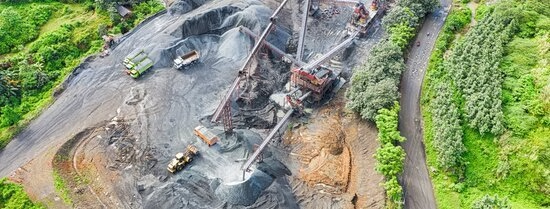On Friday, 21 June, the International Institute of Social Studies (ISS) and Leiden-Delft-Erasmus (LDE) Global hosted an engaging panel discussion on sustainable structural transformation in Latin America.
Panelists Professor Fander Falconi, Dr Soledad Valdivia River, Dr Fatima Delgado Medina and Dr Sebastian Ureta shared their insights on how the region can shift away from its heavy reliance on primary commodity extraction of agricultural products and natural resources. The session was organized and co-chaired by ISS professors Murat Arsel and Lorenzo Pellegrini.
Why sustainable structural transformation?
Professors Arsel and Pellegrini introduced the panel by discussing the polycrisis facing Latin America, highlighting three particular dimensions: climate change, development and growth; and democracy and accountability. In each instance, Latin America is home to grave environmental problems (e.g. deforestation of the Amazon rainforest) and cutting-edge intellectual and policy-related developments (e.g. ongoing efforts to rethink the link between economic growth and socio-economic development). Extractive industries intersect with many dimensions of Latin America’s polycrisis. For structural transformation to be sustainable, it will have to chart a just and equitable way to transition the region’s economy away from primary commodity exports.
The first panelist Professor Fander Falconi discussed Latin America's political shift towards left-wing politics and progressive policies in the early 2000s, followed by a regression post-2015 due to COVID-19. He emphasized the region's biodiversity and the urgent need for sustainable practices. Falconi highlighted how Latin American thinkers challenge the Western notion of growth, advocating for sustainable development that is not solely focused on economic expansion. This transformation underscores the need to recognize cultural diversity, promote inclusive institutions, and ensure active democratic participation. Additionally, he noted the necessity for wealthy nations to reduce fossil fuel demand and adopt policies promoting dematerialization.

What stands in the way of sustainable structural transformation?
Following Professor Falconi, the other speakers provided diverse perspectives on the obstacles and solutions to achieving sustainable structural transformation. Dr Soledad Valdivia River shed light on the grave dangers faced by environmental defenders and the political-economic shifts in Bolivia, emphasizing indigenous communities’ complex relationship with extractivism. Dr Fatima Delgado Medina argued for redefining sustainability by acknowledging the historical impacts of colonization, which are often overlooked in traditional sustainability discourse. Dr Sebastian Ureta brought a fresh perspective with his focus on marine transitions in Chile, particularly the burgeoning seaweed industry. He highlighted the potential of seaweed-based innovations to drive sustainable economic opportunities, while addressing the socio-political and epistemic aspects of extraction and fostering respect for nonhuman entities.
The way forward
Overall, the panel emphasized the need to understand Latin American dynamics within a global and historical context characterized by persistent inequality and injustice. In other words, the balance between socio-economic development and environmental sustainability can only be found as part of a broader rethinking and reordering of global power dynamics. Environmental justice and decolonialization are key to this process but there remains much work to conceptualize them concretely and effectively.
In closing, the organizers and panelists extended their gratitude to the audience for their active participation, making the session dynamic and informative. Stay tuned for more events and discussions on sustainable development by visiting our event's webpage.

